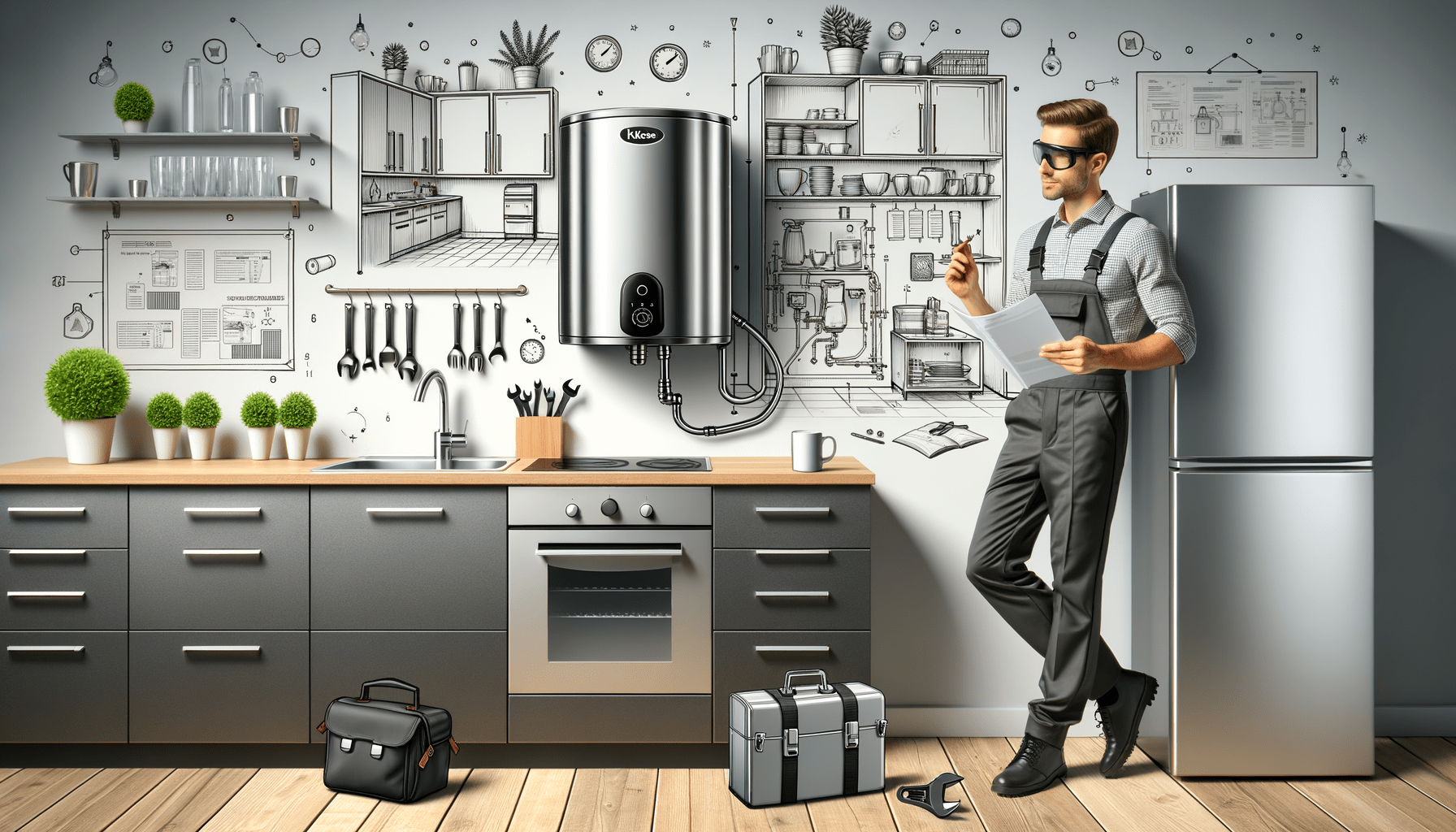Has your trusty dishwasher suddenly stopped draining? Don’t panic just yet. Here’s a handy guide highlighting the most common causes of dishwasher blockages and effective solutions to resolve this household quandary.
Contents
- Reasons for Dishwasher Retention
- Preventing Blockages in Dishwashers
- Clearing Blocks in Dishwashers
- Essential Tools for Unblocking
- Unresolved Dishwasher Drainage Issues
- Manual Drainage of Dishwasher
- Effective Ways to Unclog
- Issues with Incomplete Draining
- Exploring Filter Upgrade Dishwashers
- Concluding Thoughts
- Frequently Asked Questions (FAQ)
Reasons for Dishwasher Retention
The first step is understanding why your dishwasher isn’t draining appropriately. Approximately 20% of dishwasher issues are related to improper draining, and a significant part (70%) is due to food particles and debris clogging the drainage system.
Around 15% of drainage issues stem from faulty or blocked drain hoses. Therefore, checking these components should always be part of your troubleshooting routine. The problem could also be as simple as an error in installation or issues with levelling, accounting for occurances in 5% cases.
Moreover, approximately 10% of these issues result from malfunctioning check valves that prevent the backflow of water, while pump-related failures account for another 5%. Thus, even though it can be annoying when your dishwasher doesn’t drain, understanding these common reasons can help troubleshoot more efficiently.
Preventing Blockages in Dishwashers
A stitch in time saves nine, as the old saying goes. Hence prevention should be your primary strategy to avoid drainage problems. Interestingly, about 35% of service calls for dishwashers can be resolved by simply cleaning the filters or clearing blockages.
The World Plumbing Council advises thorough scraping off food debris before loading dishes. Always ensure you are using high-quality detergent and rinse aid, which can help breakdown food particles and prevent deposits on dishes and interior components.
Regularly cleaning your dishwasher’s spray arm and filter will also help maintain the dishwasher’s optimal performance and extend its lifespan – good news for your wallet and peace of mind!
Clearing Blocks in Dishwashers
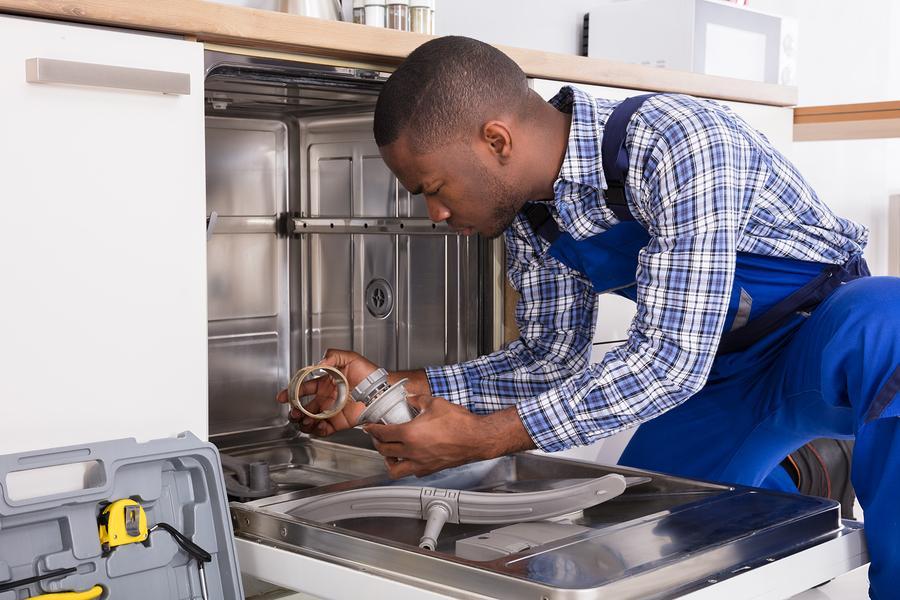
If prevention doesn’t work, and you find yourself with a blocked dishwasher, there’s still no need to panic. Luckily, some quick fixes can clear blockages in most cases. The magic lies in your kitchen stock- a mixture of baking soda and vinegar can dissolve minor clogs.
You will also need to check the filter for accumulated debris. As mentioned earlier, food particles and debris account for 70% of dishwasher drainage problems. Rinse it under warm water and use gentle cleaning methods to get rid off any dirt or grime.
Faulty drain hoses are another common culprit that should be inspected. Repair or replace them if required. This step can solve 15% of dishwasher drainage problems.
Essential Tools for Unblocking
In case you need to do some DIY unclogging, there are a couple of essential tools that would come in handy. These include a plunger, plumber’s snake, wrench and a screwdriver.
The plunger is indispensable when it comes to clearing stubborn clogs. A plumber’s snake can extend your reach significantly through the plumbing system to remove solid blockages. Wrenches and screwdrivers will assist in opening up areas that are difficult to reach, ensuring a thorough job gets done.
Unresolved Dishwasher Drainage Issues
But what if after all that hard work, the water remains stagnant? Despite best efforts, about 5% of drainage issues caused by pump-related failures may require professional attention from certified plumbers such as Dan’s Plumbing.
Also, do keep in mind that if your dishwasher was recently installed or moved around and is having issues— errors in installation or leveling might be responsible for the problem.
Manual Drainage of Dishwasher
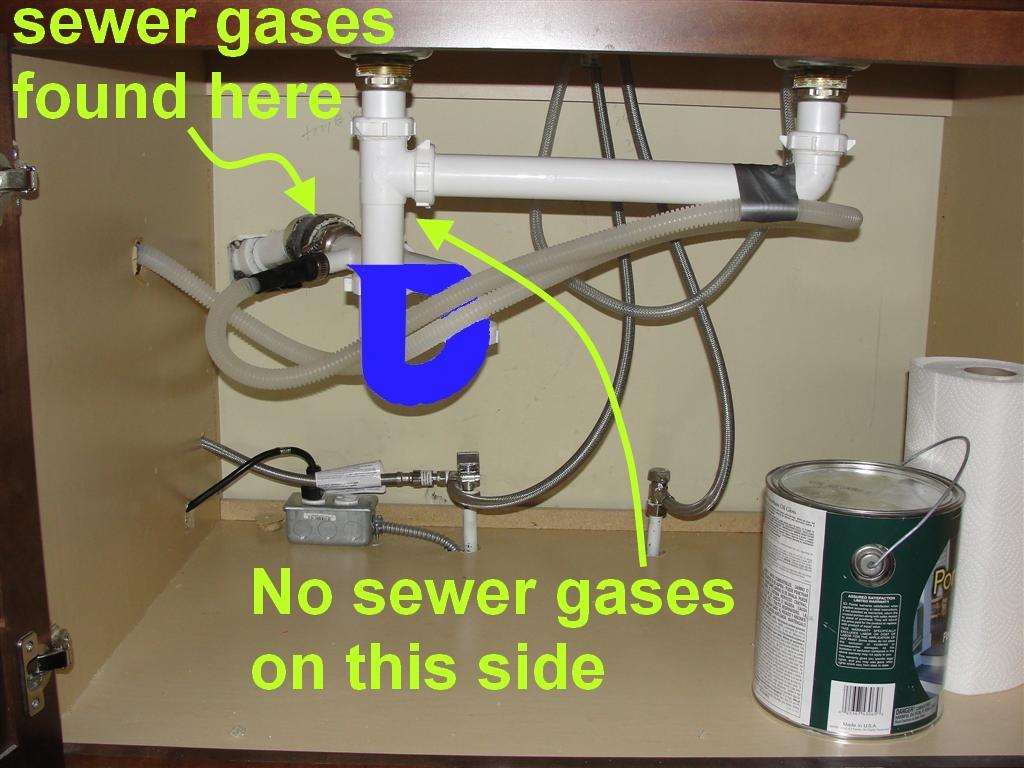
While seeking professional help, you can temporarily alleviate the situation by draining your dishwasher manually—a process that will require patience and some muscle.
Disconnect the dishwasher from the power source, scoop out the water using a smaller container, and dry absorb any remaining water with towels. Make sure to scrub down all parts with a vinegar solution afterwards.
Effective Ways to Unclog
There are also some more in-depth methods you could try to unclog your dishwasher’s drainage system. Often, these methods require disassembling components like the pump and check valves to thoroughly clean or replace them if necessary.
Dishwasher design varies; you may need to consult your owner’s manual for precise guidance on how to accomplish this. However, rest assured it can be an efficient way to resolve the issue—research has shown that about 80% of consumers have succeeded in handling minor dishwasher draining problems without needing professional help.
Issues with Incomplete Draining
The dishwasher is one of those trusty appliances that we often take for granted – until it suddenly stops working. If you’re currently facing a dilemma where your dishwasher isn’t draining, you’re not alone. In fact, approximately 20% of dishwasher problems are related to water not draining properly. What’s surprising to many homeowners is that around 80% of these issues can be tackled without calling a professional. Cheers to DIY, mate!
Let’s first address one of the leading causes, which are food particles and debris. They account for about 70% of dishwasher drainage issues. So before you freak out and call a plumber, have a squiz in there first. It could be as simple as bits and pieces of your last meal preventing proper drainage.
Roughly 15% of dishwasher drainage problems are caused by a faulty or clogged drain hose. Yes, the ridgy thing at the back of your unit. Errors in installation or leveling can also contribute to this issue, comprising about 5% of non-draining dishwasher stories according to our stats.
Last but not least, around 10% of these problems are due to malfunctioning check valves which prevent backflow of water. We can’t ignore that a small percentage, about 5%, are due to pump-related failures which might require some professional attention.
Exploring Filter Upgrade Dishwashers
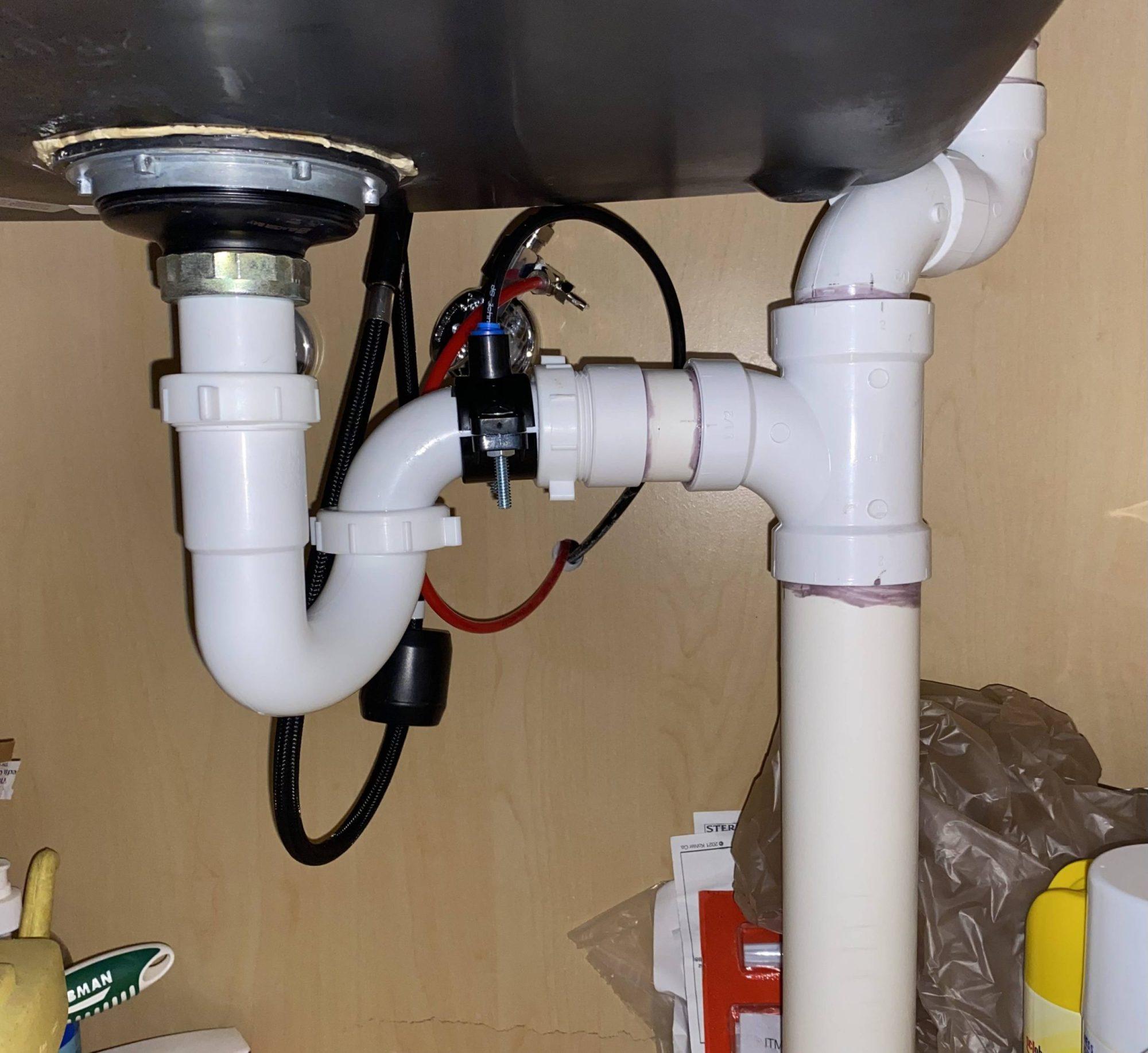
The silver lining amidst these plumbing hiccups is that technology and design advancements have resulted in filter upgrade dishwashers. About 35% of service calls for dishwashers can be resolved by simply cleaning the filters or clearing blockages – something these upgraded versions handle quite splendidly.
No more fishing around for bits of food! These swanky machines work effectively to shred food remnants and send them down the drain. They significantly reduce the chances of clogs and help keep your dishwasher running smoothly.
Not sure how to select the right one for your kitchen? No worries. We recommend checking out choice.com.au, your reliable Australian consumer advocacy group, to get comprehensive reviews on the latest filter upgrade dishwashers.
But remember, even with upgraded versions, regular maintenance is key to keep your investment in top-notch condition. Go through the owner’s manual, follow the recommended cleaning procedures and always ensure that you remove any large chunks of food before loading your dishes.
Concluding Thoughts
To sum it up, whether it’s a filter cleaning or a hose check, most draining issues can be addressed by you. However, if the problem persists despite all your attempts – don’t force it. Sometimes professional plumbers like us have the skills and tools necessary to handle these more complex issues. You’ve done your part; allow us to do ours in keeping your dishwasher up and running flawlessly.
Frequently Asked Questions (FAQ)
Why won’t my dishwasher drain?
Your dishwasher may not be draining because of a blockage in the filter or hose, or due to faulty components like the pump or check valves. Sometimes, improper installation or levelling may also cause this issue.
What can I do to prevent my dishwasher from clogging?
Prevent clogging by scraping off food debris before loading dishes and using high-quality detergent and rinse aid. Regular cleaning of the dishwasher’s spray arm and filter also helps.
What should I do if my dishwasher is not draining?
If your dishwasher isn’t draining, first check for blockages in the filter or hose. You can also try a home remedy of vinegar and baking soda to dissolve minor clogs. If these methods don’t work, a professional plumber may be needed.
What tools do I need to unclog my dishwasher?
You’ll need a plunger, a plumber’s snake, a wrench, and a screwdriver. They will help you to clear stubborn clogs and reach hard-to-reach areas.
Is it possible to manually drain my dishwasher?
Yes, you can manually drain your dishwasher by disconnecting it from the power source, scooping the water out with a small container and absorbing any remaining water with towels. Then, scrub down all parts with a vinegar solution.
What are filter upgrade dishwashers?
Filter upgrade dishwashers are advanced models designed to shred food remnants and send them down the drain. They significantly reduce the chances of clogs and improve the performance of your dishwasher.
When should I call a professional plumber?
If your dishwasher still doesn’t drain after trying the above-mentioned steps, it’s time to call a professional plumber. Also, if your unit was recently installed or moved and is facing issues, professionals can check for installation or levelling errors.
- Can I Get a Plumber to Help Me Install An Under Sink Water Boiler in Our Office Kitchen? - September 14, 2024
- Can a Plumber Help Me Clear a Badly Clogged Toilet? - September 4, 2024
- Can a Plumber Help Me to Replace a Bathtub Drain Stopper? - August 29, 2024
Related posts:
 Can Your Plumbers Help Me Install a Dishwasher?
Can Your Plumbers Help Me Install a Dishwasher?
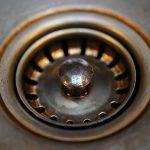 What Are Your Top Tips to Help Prevent Shower Drain Clogs?
What Are Your Top Tips to Help Prevent Shower Drain Clogs?
 How Do I Prevent Grease Build-Up in My Kitchen Pipes?
How Do I Prevent Grease Build-Up in My Kitchen Pipes?
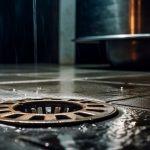 What Should I Do If My Bathtub Is Slow to Drain?
What Should I Do If My Bathtub Is Slow to Drain?
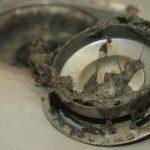 What Are The Top Causes of Foul Odours From My Drains?
What Are The Top Causes of Foul Odours From My Drains?
 How Do I Prevent Food Scraps From Clogging My Kitchen Drain?
How Do I Prevent Food Scraps From Clogging My Kitchen Drain?


